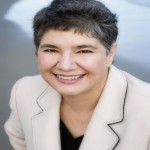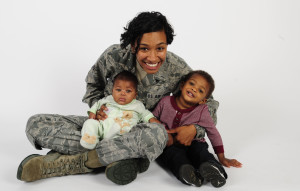One of the joys of 21st century American life is that it is more possible than ever before to follow the life path that suits you best. Nuclear family living is still celebrated, sentimentalized, and rewarded, but it is not even close to being the normative way of life. Just under 20 percent of all households in the U.S. are comprised of nuclear families. More and more people are forging other paths, such as living single, living as committed couples without marrying, and raising children without a spouse.
To those on the forefront of social change, though, there are perils as well as joys. “Cultural lag” is a fact of social life – people forge ahead, fashioning lives that work for them, long before societal attitudes catch up. Cohabitation, for example, was once described, unironically, as “living in sin.” Undeterred, more and more couples decided to live together without marrying, until the practice came to elicit little more than a shrug.
In 2010, a Pew Research Center survey showed that attitudes were beginning to catch up with practices in important ways. Only a minority of Americans believed that it was bad for society that more people were living together without marrying, more unmarried couples were raising children, more gay couples were raising children, and more people of different races were marrying. But disappointingly, a striking majority – 69 percent – said that it was bad for society that more single women were having children.
Now, in 2017, we can be more hopeful. A just-published survey of American women has documented more open-minded attitudes toward single mothers and toward other family forms that the Pew Research Center did not even include in its 2010 survey.
New National Survey about Diverse Family Forms
The nationally-representative online survey was conducted by our friends at Family Story, “a nonprofit that does research, communications and storytelling about today’s families,” together with the Lake Research Partners. Nicole Rodgers, the Family Story founder and co-director with Mia Birdsong, explains that the mission of the group is “to create a conversation that meets people where they are, embraces the dignity and value of a wider variety of family arrangements, and elevates models that illustrate the wisdom and creativity of families today.”
Participants in the Family Story survey were 1,058 women, including married and unmarried women, and women with and without children. Results were reported separately for three groups: (1) married women, with and without children; (2) unmarried mothers; and (3) unmarried women with no children.
“A Single Parent Can Do Just as Good a Job as Two Parents or Two Adults”
Most heartening, in light of the earlier Pew survey results, was the finding that at least 70 percent of the survey participants agreed that “a single parent can do just as good a job as two parents or two adults.” Seventy percent of married women and 70 percent of unmarried women with no children agreed; 78 percent of unmarried mothers agreed.
The New Co-Parents: Beyond Spouses and Romantic Partners
More than 60 percent of the women in each group said that children do best when multiple adults are invested in them, but that those adults do not need to be married parents.
Just over half of the women in each group (51 – 53 percent) agreed that “there should be more ways to raise children with someone who is not a romantic partner.” Even more of the unmarried mothers, 58 percent, said that they would consider raising a child with someone who is not a spouse or romantic partner. Many already receive substantial support from others in raising their children, including, for 45 percent of them, financial support.
Other research has shown that people involved in a child’s upbringing can include relatives of the child such as grandparents, aunts, uncles, cousins, siblings, and people who are not biological relatives but who are treated as kin (sometimes called “fictive kin,” a term I dislike). Sometimes the parents and children live in the same household as the others, as, for example, in multi-generational households. Other times the people invested in the lives of the children are outside of the household, but see the children regularly and are involved in the important events in their lives. One of the single mothers I interviewed for How We Live Now: Redefining Home and Family in the 21st Century, for example, asked twelve of the most important people in her life to be godparents to the daughter she adopted.
Sometimes the people involved in raising the children of single parents are other single parents. Thanks to CoAbode, single parents can find other single-parent families interested in living together and sharing their lives.
Perhaps the most radical innovation is the parenting partnership, in which adults look specifically for other adults to be co-parents, but not romantic partners. Websites such as Family by Design and Modamily facilitate those matches and offer lots of resources.
Beyond Open-Mindedness
The Family Story survey results are encouraging. Although many single mothers still feel judged, attitudes toward them and others following a diversity of life paths seem more positive than they were in the past.
Also heartening is the attention the survey results are getting. In the short time that the results have been available, they have already been described in publications such as Alternet and Marie Claire.
All that is good news, but it is not nearly enough. As Unmarried Equality members know all too well, significant benefits such as tax credits, access to health insurance, and special ways of tapping into Social Security are still available either disproportionately or exclusively to people who are legally married. That’s unfair to individuals, to unmarried couples, and to any pair or group of people raising children. As Nicole Rodgers put it, “If two adults are taking care of a child, why should they only receive shared benefits if they are married?”
[Notes: (1) The opinions expressed here do not represent the official positions of Unmarried Equality. (2) The comment option on the UE website has been invaded by spammers, so I have disabled comments for now. I’ll post all these blog posts at the UE Facebook page; please join our discussions there. (3) For links to previous columns, click here.]
 About the Author: Bella DePaulo (PhD, Harvard), a long-time member of Unmarried Equality, is the author of Singled Out: How Singles Are Stereotyped, Stigmatized, and Ignored, and Still Live Happily Ever After and How We Live Now: Redefining Home and Family in the 21st Century, among other books. She writes the “Living Single” blog for Psychology Today and the “Single at Heart” blog for Psych Central. Visit her website at www.BellaDePaulo.com and take a look at her TEDx talk, “What no one ever told you about people who are single.”
About the Author: Bella DePaulo (PhD, Harvard), a long-time member of Unmarried Equality, is the author of Singled Out: How Singles Are Stereotyped, Stigmatized, and Ignored, and Still Live Happily Ever After and How We Live Now: Redefining Home and Family in the 21st Century, among other books. She writes the “Living Single” blog for Psychology Today and the “Single at Heart” blog for Psych Central. Visit her website at www.BellaDePaulo.com and take a look at her TEDx talk, “What no one ever told you about people who are single.”



